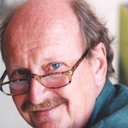Cupping for stroke rehabilitation: a systematic review.
Palavras-chave
Resumo
Cupping is often used for stroke rehabilitation in Asian countries. Currently, no systematic review of this topic is available. The aim of this systematic review is to summarize and critically evaluate the evidence for and against the effectiveness of cupping for stroke rehabilitation. Thirteen databases were searched from their inception through March of 2010 without language restrictions. Prospective clinical trials were included if cupping was tested as the sole treatment or as an adjunct to other conventional treatments for stroke rehabilitation. We found 43 potentially relevant articles, of which 5 studies including 3 randomized clinical trials (RCTs) and 2 uncontrolled observational studies (UOSs) met our inclusion criteria. Cupping was compared with acupuncture, electro-acupuncture and warm needling. Some superior effects of cupping were found in two of the RCTs when compared to acupuncture in hemiplegic shoulder pain and high upper-limb myodynamia after stroke. The other RCT failed to show favorable effects of cupping when compared to acupuncture and warm needling in patients with hemiplegic hand edema. The two UOSs reported favorable effects of cupping on aphasia and intractable hiccup after stroke. There are not enough trials to provide evidence for the effectiveness of cupping for stroke rehabilitation because most of the included trials compared the effects with unproven evidence and were not informative. Future RCTs seem warranted but must overcome the methodological shortcomings of the existing evidence.



